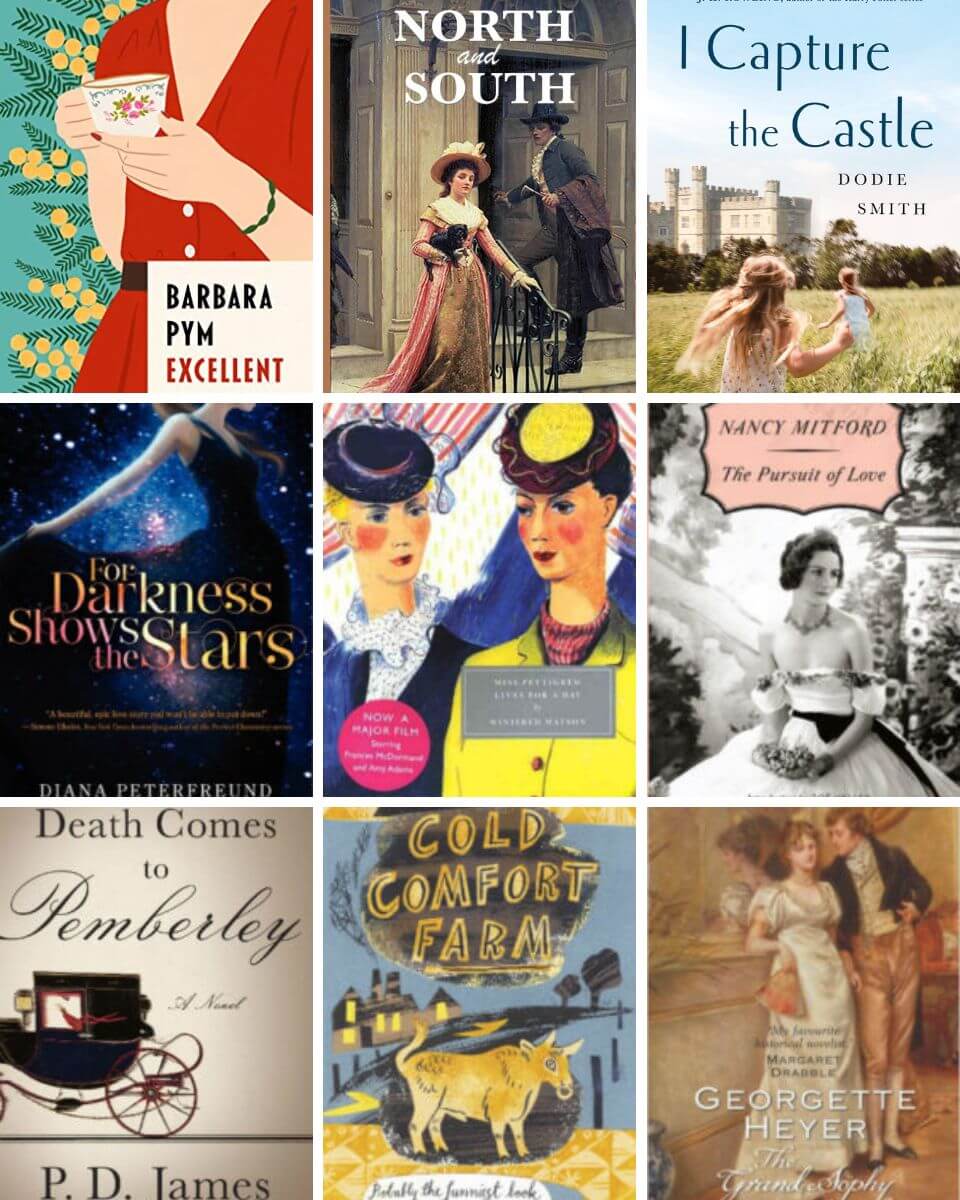Jane Austen Books: A Comprehensive Exploration

Jane Austen, a name synonymous with wit, social commentary, and enduring romance, continues to captivate readers centuries after her death. Her six completed novels, along with her juvenilia, offer a rich tapestry of 19th-century English life, exploring themes of love, marriage, class, and social ambition with unparalleled insight and humor. This comprehensive exploration delves into the world of Jane Austen’s books, examining their genres, enduring legacy, and multifaceted cultural impact. We’ll journey through her novels, analyzing her writing style, exploring the educational value of her works, and investigating the enduring influence she continues to wield on literature and popular culture.
The Novels: Genres, Themes, and Enduring Appeal
Jane Austen’s novels are primarily categorized as novels of manners, a genre that meticulously details the social customs, behaviors, and interactions within a specific social class. However, their appeal transcends mere genre classification. Austen masterfully blends elements of romance, satire, comedy, and social realism, creating complex narratives that resonate with readers across time and cultures.
Each novel presents a unique narrative arc and cast of characters, yet common threads weave through them all. The central theme of marriage, often driven by economic necessity and social expectation, is intricately intertwined with individual desires, personal growth, and the complexities of human relationships. Austen’s acute observation of social dynamics, particularly within the gentry and middle classes, provides sharp satire that exposes hypocrisy, pretense, and the societal pressures faced by women in her time.

Sense and Sensibility, Austen’s first published novel, contrasts the rational Elinor and the passionate Marianne, exploring the different approaches to love and the consequences of impulsive versus measured actions. Pride and Prejudice, arguably her most famous work, examines the initial prejudice and subsequent attraction between Elizabeth Bennet and Fitzwilliam Darcy, exposing the societal barriers and personal flaws that must be overcome to achieve true love.
Mansfield Park presents a more nuanced and complex narrative. Fanny Price, a young woman raised in a less privileged household, navigates the complexities of family, morality, and societal expectations within the wealthy Bertram family. The novel also raises significant questions about the morality of colonialism and slavery, given Sir Thomas Bertram’s wealth derives from a plantation in Antigua. Emma, often considered her most playful novel, features the meddlesome and self-assured Emma Woodhouse, who learns humility and self-awareness through her attempts to manipulate the romantic lives of those around her.

Northanger Abbey, a Gothic parody, satirizes the popular genre of Gothic novels through the naive Catherine Morland, who projects her literary fantasies onto the realities of her surroundings. Finally, Persuasion, Austen’s last completed novel, explores the enduring power of love and second chances, focusing on Anne Elliot’s rediscovery of her feelings for Captain Wentworth after years of separation.
Austen’s Authorial Voice: Style and Inspirations
Austen’s writing style is characterized by its wit, irony, and precise use of language. Her prose is remarkably clear and engaging, conveying complex emotions and social nuances with subtle yet effective precision. She employs free indirect discourse, seamlessly blending the narrator’s voice with the thoughts and perspectives of her characters, giving the reader intimate access to their inner lives while maintaining a detached, observant tone.

Her inspirations are diverse, drawing from the social circles she inhabited and the literary works she encountered. While she never explicitly names specific influences, her novels subtly reflect the conventions and tropes of 18th-century sentimental novels, while simultaneously subverting and satirizing them. The influence of Enlightenment thought, with its emphasis on reason and observation, is also apparent in her meticulous portrayal of social interactions and individual motivations.
The Educational Value and Life Lessons
Beyond their entertainment value, Austen’s novels offer significant educational merit and impart valuable life lessons. They provide insightful commentary on human nature, exploring themes of pride, prejudice, social class, gender roles, and the complexities of human relationships.
The novels’ meticulous depiction of social customs and etiquette provides a window into 19th-century English society, offering valuable historical context and cultural understanding. Further, they provide a powerful exploration of moral dilemmas, demonstrating the consequences of impulsive behavior, flawed judgment, and the importance of self-awareness and personal growth. Austen’s heroines, though flawed and often initially lacking in self-knowledge, undergo significant transformations, demonstrating the capacity for personal growth and change.
The Legacy of Jane Austen: Literary Influence and Adaptations
Jane Austen’s influence on literature is profound and enduring. Her novels have inspired countless writers, influencing both the form and content of novels of manners and broader explorations of social dynamics and human relationships. Her acute observations of social behavior, witty dialogue, and complex characters continue to inspire writers and provide rich material for critical analysis.
Her works have been adapted into numerous films, television series, plays, and even operas, demonstrating their enduring appeal and versatility. These adaptations often modernize the settings and sometimes update themes, showcasing the timeless nature of Austen’s narratives and the adaptability of her characters to different cultural contexts. The numerous fan communities, online forums, and scholarly discussions surrounding Austen’s work further demonstrate the lasting power of her literary achievements.
Jane Austen and the Libraries: Preserving and Sharing Her Work
Libraries, both physical and digital, play a crucial role in preserving and disseminating Austen’s works. Public libraries provide free access to her novels, ensuring that her stories are widely accessible. Digital libraries expand access globally, allowing individuals from diverse backgrounds to engage with her writing. Rare collections and archives house unique manuscripts and early editions of her work, offering valuable resources for scholars and enthusiasts alike. These resources provide opportunities for deeper engagement with her life and literary production. This accessibility is vital to maintaining a legacy that continues to shape literature and inspire readers worldwide.
The enduring popularity of Jane Austen’s novels underscores their timeless relevance. Her witty prose, insightful social commentary, and compelling characters continue to resonate with readers, scholars, and filmmakers alike. Her work serves as a lasting testament to the power of literature to illuminate the human condition and offer enduring lessons about love, life, and society. From scholarly analysis to popular adaptations, Jane Austen’s legacy remains a vibrant and evolving part of the literary and cultural landscape.